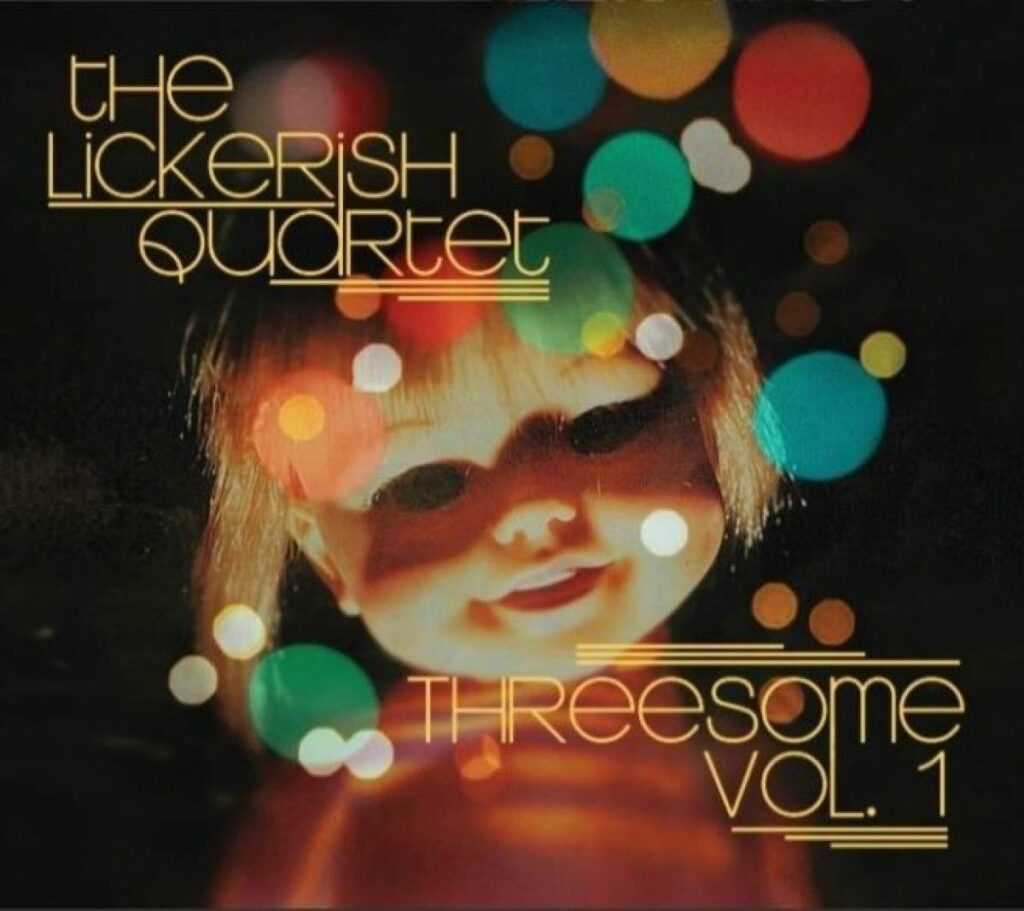Sometimes there’s just no other way. You don’t want to do it, but all roads are traveling in that one direction. You go there or you don’t go at all. I imagine that’s the feeling the members of the band The Lickerish Quartet feel.
The Quartet, which is actually a trio named after an Italian erotic film, consists of Roger Joseph Manning Jr., Eric Dover, and Tim Smith. They dropped their E.P., Threesome Vol. 1, last month. Crucially, all three members of this band were previously connected to the cult power-pop band Jellyfish, and unfortunately that is how the E.P. is being marketed, as a quasi-reunion.
I get it. In the years after the dissolution of Jellyfish, the group moved from a beloved and legitimately wronged band with a small but devoted fan base to something akin to a legend. A tiny legend – let’s keep things in proportion – but in a specific genre subsection, Jellyfish is godhead.

Post-Jellyfish, The Lickerish Quartet’s members hadn’t become megastars. In Manning’s case, he did quite well as a session musician, backing up Beck and others, but his solo releases stayed low-profile, and not necessarily because he wanted it that way. His E.P. Glamping from a couple years back is a shockingly solid effort, worthy of praise and attention, not getting much of either.
So you are in this reunion effort, but here’s the problem. It doesn’t sound much like the top marquee band the reunion proposes to capitalize upon. Threesome Vol. 1 is not the second coming of Jellyfish, and it darn well shouldn’t be. The four tracks on the release are a piece with the stylistic tropes the previous group was known for, being ’60s influenced psych-pop, glistening AM radio confections, the occasional glam rock slap in the face, and a black streak of subversion throughout. Their second album, Spilt Milk, while appearing as all gorgeous with carnival lights and primary colors on the outside is at heart a concept record critical of organized religion.
Threesome Vol. 1‘s first single, “Lighthouse Spaceship,” comes closest to the identifying DNA. “Fadoodle” is a breezy fiddle-about on the the subject of…wanting to fadoodle. If I need to explain the euphemism to you, consider yourself hopeless and go watch some NC-17 content on Netflix.”There Is A Magic Number” and “Bluebird’s Blues” are also keepers, offering a solid effort from top to bottom.
On the whole, I don’t think the marketing does the material justice. This is a terrific little mini-album and can stand on its own, but the industry does not work that way. You gotta have branding.
Since this is self-released by the band, they realize it too and have to do everything they can to give this new venture a fighting chance (especially since a certain Mr. Covid has bashed all musicians across the kneecaps).
Is that fair? Most certainly not, so I would advise you give Threesome Vol. 1 a fair shot in spite of, not because of, the heritage. And I cannot stress this enough: the reasons why Manning, Smith and Dover did it are perfectly legitimate, and I guarantee that it was somewhat a sacrifice to lean on those connections. If you enjoy the recording as much as I did and that translates into sales and some excitement, one hopes that a Volume 2 will emerge and have the mojo it needs to stand alone.